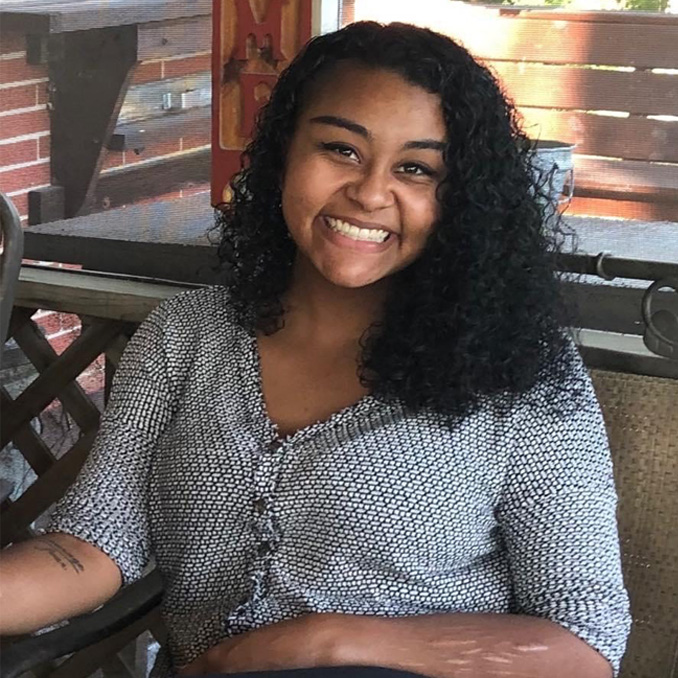Finding the potential for change
Sabrina Denise McCormick came to St. Francis Center at age 15 after a suicide attempt during what she called “one of the worst moments of my life.”
Adopted at 2 weeks old, Sabrina grew up surrounded by abuse and addiction and was eventually removed from her home. At age 12, she spent a month in an Illinois residential treatment center. Along with addiction, Sabrina was grappling with eating disorders and cutting before her low point led her to St. Francis Center.
The adolescent residential treatment center on the campus of Franciscan Health Dyer would be her home for the next 11 months, providing intensive therapy in a secure environment. The center houses up to 42 youths, ages 12 to 18, in two levels: separate locked units with 15 beds each for boys and girls, then moving to a 12-bed Journey unit, which provides additional privileges.
“At that point, I wasn’t too nice or approachable at 15, but they didn’t care. The first three or four months there, I didn’t look anyone in the eye,” Sabrina said.
Eventually, she began communicating with the staff and finding reasons for optimism. “They took us to the Shrine of Christ. They took us to Dairy Queen. I never did those things growing up. It gave me a taste of happiness, that it was possible,” she said.
Now 24, Sabrina is the assistant director of hospitality and nutrition at an assisted living/nursing home/childcare facility in Crown Point. Before the pandemic, she returned to St. Francis Center to speak to the teens in the center’s Journey unit and share her story.
“A majority of the same staff was there,” she said. “I carry these people in my daily life.” Sabrina pointed to clinical therapists Robin Lidston and Alicia Doolin as being particularly instrumental in her progress.
Lidston said the kids really paid attention when Sabrina came to speak. “It’s very motivating when somebody who has been here can come back and tell their story and how it affected them. But also, she’s pretty open that she had some bumps after leaving here,” she said.
Sabrina attended another treatment center at 16-1/2, but she’s now five years sober and is thankful for the 12-step program that changed her life. “You can get sober, you can change your life, too,” she said.
Doolin concurs, noting the commitment from the courts in supporting the program’s potential to change a child’s path. “As therapists, we always see that there’s potential for change. As long as we’re alive and kicking, you can always change,” she said.

